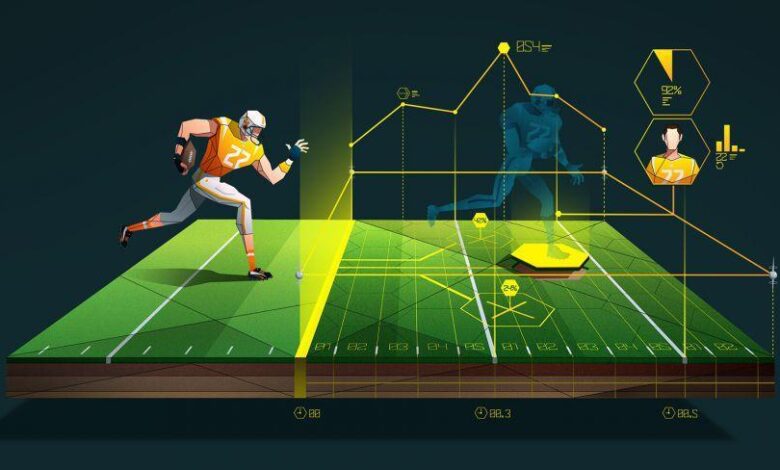The Link Between Big Data & Sports

The sports industry is one of the largest financial markets in the world of entertainment. With multibillion-dollar assets, investments and companies, much attention has been brought to how the industry is structured and appreciated by fans and financial stakeholders.
That is why data has become a large part of the business and the sport. Nowadays, Big Data is the trend that seems to be modifying the way both users and investors are starting to view the world of sports. Whether checking on financial statements or reviewing one’s Preakness odds, data is now one of the key trends in sports.
From the Angle of Fans
It’s easy to tune in to SportsCenter or any other sports news and data provider to see how one’s favorite sports teams are doing during a season. It’s also easy to just check data at one’s top sites. These stats and numbers are almost a given for all fans and those who truly appreciate the sport.
For bettors, certain providers such as BetUS have worked hard to keep a functioning system that keeps feeding top stats to fans about their favorite teams and players. It’s easy to say, yet the process is complex.
Modern data providers are constantly working on specific models to build solid tech infrastructure that can work with an endless number of data lines, results, and stats. Yet, that’s the business side of data.
For fans, numbers are indicators that can paint a much more accurate picture of how sports franchises and players are performing. These tend to have a high value for true sports fans who genuinely want to make the most of their experience while appreciating the sport.
Data Is King
For the betting industry, data is a must. Bettors rely on stats and odds to set their games straight and invest their money in the most beneficial manner possible. So from that perspective, stats are a must and cannot be left out of the industry itself.
Fans, on the other hand, are looking for more specificity and a different tone to appreciate their favorite sports. For both, however, there is a high value in data. Numbers reflect on results and in the end, under the guidelines of a competitive grid, sums of numbers and digits are what define the sport itself.
Therefore, from the fans’ perspective, data and stats are essential to truly understand the sport and reflect everything going onto a field or track in the most accurate way possible.
The Business Angle
In terms of business, there are two sides to the story when it comes to dealing with Big Data. Stats and numbers are generated by the industry and offered to the end-user by a secondary sector.
Tech and analytical specialists generate data for different industries. Sports have become a primary focus for these providers. Companies like BetUS will purchase that data that they can later offer to their clients. The business is, therefore, only divided into a couple of facets.
However, big data is the trend that continues to propel these industries. Thanks to tech tools that allow for the creation and management of abysmal quantities of data, providers can cover almost every angle of a story.
That allows companies such as BetUS and others facing end-users to come and pick which types of data they want to bring into their platforms. For instance, broadcasters and betting sites might want to keep everything related to current stats and results on various sports leagues.
However, specific tools that allow for data production and similar models for the betting industry quickly gain a high value. As a result, this aspect of data management has become a large industry itself.
The value of data is growing, and both sides of the industry are now demanding to keep this aspect of their offer updated and in top shape. Big Data is, therefore, continuing to reshape the way most bettors, fans, and businesses view numbers and stats.
For more valuable content visit this website.
.






